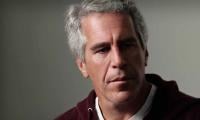India, Pakistan and people like us
Dubai eye
The writer is a Middle East based
columnist.
At a time when just about everyone is losing their heads, joining in the hate fest directed by the BJP’s Parivar, it’s heartening to see a little known actor show some spine.
“Pakistan is not hell; the people there are just like us. They treated us very well”, tweeted actor Ramya, a former Congress MP, who recently attended the first Saarc Youth Parliamentarians’ Conference in Islamabad and returned after a week with fond memories of the surprising warmth and generous hospitality offered in the ‘enemy territory’.
Clearly, the Kannada actor was responding to Defence Minister Manohar Parrikar’s edict, promising hell and damnation for those visiting Pakistan. Predictably, the tweet set off a storm of abuse and protests by Hindutva supporters, with media warriors and trolls rushing in to skewer Ramya for praising the enemy.
For good measure, a lawyer has filed sedition case against the star in a Karnataka court. A sensible court, under normal circumstances, would have thrown out the frivolous plea. But these are far from normal times.
The actor, however, has refused to apologise: “I will not apologise. I have done nothing wrong. I am entitled to my views and that is what democracy is about. I am not anti-national.”
Indeed, this is the most basic definition of democracy – entitlement to one’s views. This had been the defining feature of India’s freedom struggle and democracy until not long ago. Gandhi spoke softly but never shied away from speaking truth.
In saying so and taking a stand, Ramya demonstrates the courage of conviction that few of us possess today. It takes real guts to swim against the tide and stand up for one’s beliefs. In today’s conforming times, it is nothing short of jihad, or dharam yudh, if you will.
If only her grand old party, which once led the freedom struggle, had demonstrated some of this courage and moral clarity, it wouldn’t be in the predicament it finds itself in today.
Coming back to the larger issue, since when hating all things Pakistani has become the gold standard of patriotism in India? Truth be told, it has always been like this for India’s largest minority. It has always been held to a different, nearly impossible standard in the world’s greatest democracy. To demonstrate their love for and loyalty to the land of their birth and generations of ancestors, they must abuse and excoriate the neighbour at every possible opportunity.
This would have been understandable in the years soon after the creation of Pakistan when the two countries were still exchanging refugees. However, the Indian Muslim carries this cross, this heavy guilt of Partition and being identified with Pakistan all his life. It had been a little subtle, just below the surface under the Congress while it is much more open and right in your face under the BJP.
Evidently, in the ‘acche din’ (good times) ushered in by the BJP, it is not just Muslims who would now be judged by this unique standard of patriotism. Anyone who refuses to go with the herd and has a mind of his or her own is a sinner and deserves instant retribution.
Not long ago Pakistanis and the Pakistani state, not to mention its military and media, would endlessly obsess over India. Its military still keeps the big, eastern neighbour in its sights although much of its force is now busy battling the militants along the Afghan border. Given Pakistan’s size, population and the history of confrontations with India – three major wars and perpetual tensions – this big ‘Indian complex’ of Islamabad is understandable.
But in the past decade or two, Pakistan seems to have moved on. The country has undergone a silent but unmistakable transformation as far as its equation with India is concerned.
If you watch Pakistani news channels or scan Pakistani newspapers, you would notice that ordinary Pakistanis, intellectuals and media are no longer preoccupied with India, let alone pathologically hate all Indians and plot their annihilation. Far from it. Pakistanis today are more concerned about their own problems like extremism, endemic corruption, frequent power cuts and other infrastructure issues.
At the same time, there’s genuine interest in and even admiration for the melting pot called India, its strong democratic institutions, its colourful politics, world-class cinema, food, culture and literature.
I have never been to Pakistan. But having lived and worked with Pakistanis for the past 14 years in Dubai, where Indians and Pakistanis freely interact with each other, attend art and cultural events like concerts, mushairas and plays together and even host each other at home, I tend to agree with Ramya. The Pakistanis are people just like us and, yes, they are perfect hosts.
Which is something that Pakistan’s worst critics, including those from the West, cannot stop talking about.
Even as the storm over Ramya’s remarks is yet to blow over comes this moving and courageous piece by Harsh Mander in Scroll.in. The headline itself – #SeditionThis: Why I believe Pakistanis are the most gracious people in the world – is enough to unleash the hate squads and truckloads of brickbats on the soft-spoken activist and author. Mander, the son of refugees uprooted by Partition violence, was so shaken by the Gujarat 2002 pogrom that he quit his rewarding civil service career, dedicating himself to serving the riot victims.
In what is perhaps his finest piece yet, Mander talks about his historic journey with his parents to Rawalpindi, the city in which his mother was born and lived until she was 18. Her family left the city following Partition.
Mander talks about the extraordinary love and warmth with which they were all received in Pakistan and the emotional moment when they finally found the home in which his mother grew up. When she said apologetically to the house owner, “I lived as a child here, before Partition. I think this was our home”, his response was spontaneous. “Mataji, why do you say this was your home?” he said. “It remains your home even today. You are most welcome.”
Mander talks about at least two more such trips to Pakistan, with his extended family, to various cities of Pakistan and being greeted with same warmth and hospitality, before concluding: “I have travelled to many countries in the world in the 60 years of my life. I have never encountered a people as gracious as those in Pakistan. This declaration is my latest act of sedition!”
Perhaps this is what Ramya was trying to convey when she said that Pakistanis are people like us.
And why not? No matter what the politicians and cynics of security establishment on both sides would have us believe, Indians and Pakistanis have so much in common and resemble each other in ways like no two other countries and people do. Even their problems are the same.
This is so because not long ago they had after all been part of one country and one shared heritage. Whatever the circumstances and reasons of their separation, all that they shared – and still do – is too great and precious to be forsaken for the whims and fancies of the politicians. Indeed, it would be a great tragedy if that happened.
As veteran Saudi editor Khaled Almaeena, a loyal friend of both India and Pakistan, puts it, the real enemies of Indians and Pakistanis are poverty, hunger, corruption and disease. “Go to a slum in Mumbai or Karachi and you will see the same expressions of despair and hopelessness.”
Email: aijaz.syed@hotmail.com
-
 Charlize Theron Delivers Strong Message At 2026 Winter Olympics Opening Ceremony
Charlize Theron Delivers Strong Message At 2026 Winter Olympics Opening Ceremony -
 Lil Jon Reacts To Son Nathan Smith's Death: 'Devastated'
Lil Jon Reacts To Son Nathan Smith's Death: 'Devastated' -
 Bianca Censori Reveals Where She And Kanye West Stand On Having Children Together
Bianca Censori Reveals Where She And Kanye West Stand On Having Children Together -
 Taylor Swift Hypes Olympic Athletes In Surprise Video Message
Taylor Swift Hypes Olympic Athletes In Surprise Video Message -
 Timothy Busfield Charged With Four Counts Of Child Sexual Abuse
Timothy Busfield Charged With Four Counts Of Child Sexual Abuse -
 Kanye West First Contacted Bianca Censori While In Marriage To Kim Kardashian?
Kanye West First Contacted Bianca Censori While In Marriage To Kim Kardashian? -
 Travis Kelce Reveals What His Nieces Really Do When He, Taylor Swift Visit
Travis Kelce Reveals What His Nieces Really Do When He, Taylor Swift Visit -
 Lola Young Makes Career Announcement After Stepping Back From Touring
Lola Young Makes Career Announcement After Stepping Back From Touring -
 Priyanka Chopra Shares Heartfelt Message For Nick Jonas
Priyanka Chopra Shares Heartfelt Message For Nick Jonas -
 Spotify, Major Labels File $13b Lawsuit Over Alleged Music Scraping
Spotify, Major Labels File $13b Lawsuit Over Alleged Music Scraping -
 Travis Kelce Opens Up About Being Backup Plan For His Nieces
Travis Kelce Opens Up About Being Backup Plan For His Nieces -
 Winter Olympics 2026: Chinese Robot Dance Goes Viral In Milan
Winter Olympics 2026: Chinese Robot Dance Goes Viral In Milan -
 Jessica Biel Urged To Divorce Justin Timberlake?
Jessica Biel Urged To Divorce Justin Timberlake? -
 Rebecca Ferguson Gets Honest About Having First Kid With 22 Year Older Man
Rebecca Ferguson Gets Honest About Having First Kid With 22 Year Older Man -
 Epstein Ties: UK Police Search Properties In Probe Into Peter Mandelson
Epstein Ties: UK Police Search Properties In Probe Into Peter Mandelson -
 Andrew Mountbatten-Windsor’s Friendship With A Child Sex Offender Turns His Future Murkier
Andrew Mountbatten-Windsor’s Friendship With A Child Sex Offender Turns His Future Murkier



